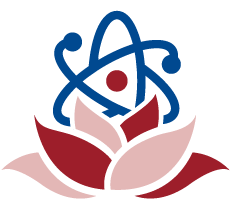| Agency བྱ་བ། རྩོལ་བ། ནུས་པ། | | |
| age-sex structure ལོ་མཚན་ཆ་བཀོད། | biol. The composition of a population as determined by the number or proportion of males and females in each age category. | ལོ་ཚོད་ཀྱི་སྡེ་ཚན་རེ་རེའི་ནང་དུ་ཡོད་པའི་ཕོ་མོའི་གྲངས་འབོར་རམ་བསྡུར་ཚད་ལ་བརྟེན་ནས་ཐག་བཅད་པའི་མི་འབོར་གྱི་གྲུབ་ཆ་ལ་གོ |
| Age of Reason རིགས་འདེད་དུས་རབས། | phil. A movement in Europe from about 1650 until 1800 that advocated the use of reason and individualism instead of tradition and established doctrine. | ཡུ་རོབ་ཏུ་ཕྱི་ལོ་ ༡༦༥༠ ནས་ ༡༨༠༠ བར་གྱི་དུས་ཚིགས་ཏེ། སྲོལ་རྒྱུན་དང་རྐང་ཚུགས་པའི་གྲུབ་མཐའི་ལྟ་བའི་ཚབ་ཏུ་རྒྱུ་མཚན་དང་མི་སྒེར་རིང་ལུགས་བེད་སྤྱོད་བྱེད་པ་གཙིགས་སུ་བཟུང་བའི་ལས་འགུལ་ཞིག |
| Age of Enlightenment རིགས་སད་དུས་རབས། | phil. An intellectual and scientific movement of 18th century Europe which was characterized by a rational and scientific approach to religious, social, political, and economic issues. Examples: The Age of Enlightenment led directly to the American Revolution and French Revolution and strongly influenced the Industrial Revolution. | དུས་རབས་བཅོ་བརྒྱད་པའི་ནང་གི་ཡུ་རོབ་ཀྱི་ཤེས་ཡོན་དང་ཚན་རིག་གི་ལས་འགུལ་ཞིག་སྟེ། ཆོས་ལུགས་དང་། སྤྱི་ཚོགས། ཆབ་སྲིད། དཔལ་འབྱོར་བཅས་ཀྱི་གནད་དོན་ལ་རྒྱུ་མཚན་ལྡན་ཞིང་ཚན་རིག་དང་མཐུན་པའི་ཐབས་ལམ་བེད་སྤྱོད་བྱས། དཔེར་ན། རིགས་སད་དུས་རབས་ཀྱིས་ཐད་ཀར་ཨ་རི་དང་ཧྥ་རན་སིའི་གསར་བརྗེ་ཆེན་མོ་བྱུང་དུ་བཅུག་ཡོད་པ་མ་ཟད། བཟོ་ལས་གསར་བརྗེ་ལ་ཤུགས་རྐྱེན་ཧ་ཅང་ཆེན་པོ་སྤྲད་ཡོད། |
| Agar ཨ་གྷར། | biol. | |
| afterglow ཤུལ་མདངས། | phys. Light or radiance remaining in the sky after the sun has set. | ནམ་མཁའི་མཐོངས་སུ་ཉི་མ་ནུབ་པའི་རྗེས་སུ་ཤུལ་དུ་ལྷག་པའི་འོད་ཟེར་རམ་འཚེར་མདངས། |
| Afrotheria ཨ་ཧྥི་ནུ་གསོའི་སྲོག་ཆགས། | biol. | |
| Aflatoxin ཨཧྥ་ལ་ཧམ་དུག | chem. | [ཨཧྥ་ལ་ཧམ་ཤའི་དུག་རྫས།] |
| Affinity འདྲིས་གཤིས། | biol. The propensity of a molecule to associate with another. The affinity of a drug is its capacity to bind to its biological target (receptor, enzyme, transport system, etc.). | འདུས་རྡུལ་ཞིག་འདུས་རྡུལ་གཞན་ཞིག་དང་མཉམ་དུ་འབྱར་བའི་གཤིས་ཀ་དེ་ལ་གོ སྨན་རྫས་ཤིག་གི་འདྲིས་གཤིས་ནི་སྨན་རྫས་དེ་རང་ཉིད་ཀྱི་སྐྱེ་ལྡན་དམིགས་འབེན་(སྣེ་ལེན་པ། སྨིན་རྫས། སྐྱེལ་འདྲེན་མ་ལག་ལ་སོགས་) ལ་འཆིང་སྦྱོར་བྱེད་པའི་ནུས་པ་དེ་རེད། |
| affiliative species-specific vocal call ཉེ་རིགས་ངེས་བཟུང་གི་འགྲོགས་བརྡ། ཁྱུ་གཅིག་པའི་འགྲོགས་བརྡ། | biol. | |
| affiliation ཉེ་སྡེབ། ཉེ་འབྲེལ། | neurosci. | |
| afferent neuron ནང་འདྲེན་དབང་རྩ་ཕྲ་གཟུགས། | neurosci. | |
| afferent ནང་རྒྱུ། | neurosci. Carrying inward to a central organ or section, as nerves that conduct impulses from the periphery of the body to the brain or spinal cord. | ལུས་པོའི་མཐའ་ནས་ཀླད་པའམ་རྒྱུངས་པའི་ནང་དུ་དབང་རྩའི་འཕར་བརྡ་བརྒྱུད་ཁྲིད་བྱེད་མཁན་གྱི་དབང་རྩ་དང་མཚུངས་པར་ལྟེ་བའི་དབང་པོའམ་སྡེ་ཚན་ཞིག་གི་ནང་དུ་འདྲེན་ཚུལ་སྟོན་པའོ།། |
| affective state མྱོང་ཚོར་གནས་བབ། | neurosci. Any kind of sentimental condition, often in which someone’s feelings control their consciousness. | སེམས་ཚོར་སྐྱེན་པོའི་གནས་སྟངས་ཀྱི་རིགས་ཤིག་སྟེ། འདིའི་གནས་སྐབས་མང་པོར་སྐྱེ་བོ་ཞིག་གི་ཚོར་བ་ཡིས་ཤེས་པ་ལ་ཚོད་འཛིན་བྱེད། |
| affective neuroscience མྱོང་ཚོར་དབང་རྩ་ཚན་རིག | neurosci. A cover term for the interdisciplinary approach to the study of emotions and affect that focuses primarily on the underlying neurological and psychological mechanisms. | སེམས་མྱོང་དང་ཚོར་མྱོང་ལ་རིག་སྡེ་སྣ་མང་མཉམ་སྤྱོད་ཀྱི་སྒོ་ནས་བརྟག་དཔྱད་བྱེད་པའི་ཐབས་ལམ་ལ་འཇུག་པའི་ཚིག་ཅིག་སྟེ། གཙོ་བོ་རྨང་གཞིའི་དབང་རྩ་དང་སེམས་ཁམས་ཀྱི་ལས་ཚུལ་ལ་དམིགས་ཀྱི་ཡོད། |
